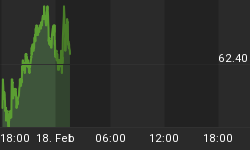The U.S.-China trade war is a moving target that is part trade war and part tech cold war that’s heating up to the point that Beijing is preparing to play one of Trump’s own cards in a move designed to treat American tech giants like Huawei and ZTE. The Financial Times reports that China’s Communist Party has ordered all state offices to remove foreign hardware and software in a potential blow to the likes of Microsoft, Dell, HP and others.
The point is a tit-for-tat that intends to do to U.S. technology what the Trump administration has done to Chinese technology.
The order, to be implemented within three years, has been dubbed “3-5-2” because the replacement of the technology will happen at a pace of 30% in 2020, 50% in 2021, and 20% in 2022.
FT cited China Securities brokerage firm as estimating that 20 million to 30 million pieces of U.S. equipment would need to be replaced.
America’s tech giants have long seen this coming.
In June, they submitted joint comments opposing Trump proposed tariffs on laptop computers and tablets among $300 billion in Chinese goods targeted for duties. They knew it would backfire.
The companies said that it would hurt consumer products and industry while failing to address China’s trade practices. “The tariffs will harm U.S. technology leaders, hindering their ability to innovate and compete in a global marketplace,” the companies said in comments.
In August, Trump delayed the tariffs initially set to begin in September, pushing them to December 15th.
For its part, the U.S. has effectively blacklisted Chinese telecommunications giant Huawei on national security concerns about whether China could use Huawei equipment to spy. Huawei has repeatedly said those concerns are unfounded.
Washington expanded its blacklist in October to include a number of Chinese surveillance technology firms.
Also, the National Defense Authorization Act signed last year prohibits executive government agencies from procuring telecommunications hardware made by Huawei and another Chinese firm, ZTE.
Huawei, the world’s third-largest smartphone company after Samsung and Apple, was making a major push to sell phones into the U.S. this year but came up against a brick wall in the form of pressure from the U.S. government. Earlier this year, U.S. intelligence heads warned American citizens against using Huawei and ZTE products.
Those two companies have been singled out as national security threats by the U.S. since a Congressional report in 2012.
So, what’s next in this tit-for-tat? Chinese arrest warrants for American tech executives in another mirroring of the U.S. move against a Huawei executive?
Related: The Free Money Bubble Is About To Burst
Last December, Meng Wanzhou, the daughter of the founder of Huawei and the company’s CFO and deputy chairwoman, was arrested in Canada at the request of American authorities.
One year later, she is still in a Canadian prison fighting extradition to the U.S.
In January, the US Department of Justice hit her with a total of 23 criminal charges against her and the company. The charges range from bank fraud to money laundering to obstruction of justice.
If China bans three U.S. tech companies’ products from government offices, it would be one of the most direct moves by the Chinese government against U.S. technology firms during the trade war.
In May, Jinggang Motor Vehicle Inspection Station notified all employees that the use of iPhones, driving in American automobiles, eating at American fast-food restaurants, or using any American product was forbidden by new company policy; any employee who violated the new rules would be fired.
This is where the trade war truly becomes a full-blown tech-based cold war, and this is where the market should be understanding that Beijing just turned up the heat, and Trump’s indication that no deal would be on the books until after 2020 elections seems more realistic than ever.
By Anes Alic for Safehaven.com
More Top Reads From Safehaven.com:

















